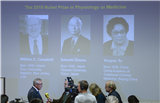German prosecutors raid Volkswagen offices
Updated: 2015-10-08 21:45
(Agencies)
|
||||||||
 |
|
A Volkswagen logo stands on the roof of the company's headquaters in Wolfsburg, Germany October 7, 2015.[Photo/Agencies] |
BERLIN - German prosecutors raided Volkswagen's headquarters and other offices on Thursday as part of their investigation into the carmaker's rigging of diesel emissions tests.
Prosecutors from Braunschweig, close to the German company's home town of Wolfsburg, said they were targeting documents and data storage devices that might help with their inquiries.
Volkswagen said it was supporting the investigation and had handed over a "comprehensive" range of documents.
Almost three weeks after it confessed publicly to rigging US emissions tests, Europe's largest carmaker is under huge pressure to identify those responsible, fix affected vehicles and clarify exactly how and where the cheating happened.
The biggest business crisis in Volkswagen's 78-year history has wiped more than a third off its share price, forced out its long-time chief executive, prompted investigations across the world and rocked both the car industry and German establishment.
Later on Thursday, the company's top US executive will tell a panel of US lawmakers he knew the carmaker might be breaking US emissions rules as long as 18 months before it admitted cheating diesel tests to regulators.
The admission by Michael Horn, in a written testimony to a congressional oversight panel a day ahead of the hearing, is likely to raise questions about why the company did not act more quickly to tackle its wrongdoing.
"In the spring of 2014 ... I was told that there was a possible emissions non-compliance that could be remedied," Horn, President and CEO of Volkswagen Group of America, said in his statement published on a US House of Representatives website.
"I was also informed that the company engineers would work with the agencies to resolve the issue," he said, without identifying the people providing him with the information.
It was not until Sept. 3, 2015, that Volkswagen told US regulators it had installed so-called "defeat devices" in some diesel engines to mask their true level of toxic emissions. US regulators made public the wrongdoing on Sept. 18.
Volkswagen has come under fire on both sides of the Atlantic for its handling of the crisis, with lawmakers, investors and customers saying it has been too slow to release information.
Analysts are still unsure how widespread the cheating was.
Germany's Sueddeutsche Zeitung newspaper reported on Thursday that Volkswagen's manipulation software was switched on in Europe, citing a company spokesman.
The carmaker has previously said the software could be installed on up to 11 million vehicles, mostly in Europe, but that for the majority of them it "does not have any effect".
In a statement on Thursday, Volkswagen said it was still investigating whether or to what extent the software interfered illegally with vehicles.
"We are working intensely on technical solutions," a spokesman said. "For that reason, questions posed at this point of time are speculative."
IN-HOUSE
Volkswagen has suspended more than 10 senior managers, including three top engineers, as part of an internal investigation. It has also hired US law firm Jones Day to conduct an external inquiry.
But some analysts have questioned whether new Chairman Hans Dieter Poetsch and new CEO Matthias Mueller, both company veterans, will introduce the sweeping changes in business practices they think are necessary to restore Volkswagen's reputation.
Poetsch said on Wednesday it would take "some time" to get to the bottom of the matter.
The company, controlled by the Piech-Porsche clan, is not drawing on outside restructuring experts to help with its plans for a new company structure, one source close to the board said.
"There's a strong tradition to handle such matters in-house," the source said, adding the company was also unlikely to draw on outside experts as it reviews investment plans and steps up cost savings to help meet the cost of the scandal.
Critics say giving top jobs to company insiders could also complicate the clean-up. For example, it would make it hard for the supervisory board to take legal action against the management board because, until he became supervisory board chairman, Poetsch sat on the management board as finance chief.
UBS analysts estimate Volkswagen could face a bill of around 35 billion euros ($40 billion) to refit cars, pay regulatory fines and settle lawsuits, though they also say this is more than factored into the stock price after its plunge.
The crisis has been a major embarrassment for Germany, which has for years held up Volkswagen as a model of the country's engineering prowess and looks to the car industry as a source of export income and an employer of more than 750,000 people.
Economy Minister Sigmar Gabriel on Thursday urged Volkswagen to be pro-active in addressing its problems, but also said critics should not overstep the mark.
"There should not be a debate about the automotive industry or about diesel technology," Gabriel said after attending a meeting of Volkswagen's world workers council.
Data on Thursday showed German exports plunged in August by the largest amount since the height of the global financial crisis in the latest sign that slowing emerging markets are hurting Europe's largest economy.
European carmakers rely heavily on diesel vehicles, which account for about a half of new sales in Europe compared with only a small fraction in the United States.
Horn, reaffirmed in his position by Volkswagen on Sept. 25, also said in his testimony Volkswagen had withdrawn its US certification application for some model year 2016 vehicles over a software feature that should have been disclosed to regulators as an auxiliary emissions control device.
- Volkswagen to pick Porsche boss as new CEO
- Volkswagen chief faces grilling by board over diesel scandal
- Volkswagen says it 'accepts and respects' watchdog's findings
- Volkswagen Import showcases 16 models at 2015 Chengdu Motor Show
- FAW-Volkswagen to recall 886 vehicles in China
- Volkswagen lowers sales forecast amid slowdown
- Robot monk with artificial intelligence makes debut
- Nursing homes, more Chinese old people's final choices
- Hit-and-run luxury car driver detained in Beijing
- Park officials say glass cracks don't affect walkway's safety
- China becomes smaller for tourists
- Scenic spots packed with tourists on National Day Holiday

 Taking a peek
Taking a peek
 News you don't wanna miss over the National Day holiday
News you don't wanna miss over the National Day holiday
 TCM knacks to fight post-holiday syndrome
TCM knacks to fight post-holiday syndrome
 Zhang Lei wins fourth season of Voice of China
Zhang Lei wins fourth season of Voice of China
 Travel rush around China as National Day holidays end
Travel rush around China as National Day holidays end-
 Rising yuan use may lift IMF basket prospects
Rising yuan use may lift IMF basket prospects 
 China wins first Nobel in medicine
China wins first Nobel in medicine-
 Gary Locke: Candor key to relations
Gary Locke: Candor key to relations
Most Viewed
Editor's Picks

|

|

|

|

|

|
Today's Top News
Tu first Chinese to win Nobel Prize in Medicine
Huntsman says Sino-US relationship needs common goals
Xi pledges $2 billion to help developing countries
Young people from US look forward to Xi's state visit: Survey
US to accept more refugees than planned
Li calls on State-owned firms to tap more global markets
Apple's iOS App Store suffers first major attack
Japan enacts new security laws to overturn postwar pacifism
US Weekly

|

|







